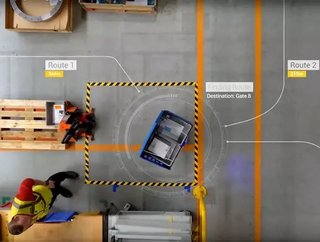Supply chains becoming increasingly 'consumer centric'

Supply chains are to become increasingly ‘customer-centric’ as a result of the rise in e-commerce.
That’s the verdict of the latest DHL Logistics Trend Radar report, which found that businesses were increasingly ordering goods online, which is driving a need for “faster and more convenient supply chains”.
Another key finding from the report is that customer demand is also driving growth in direct-to-consumer shipments of time-and-temperature sensitive goods.
In addition, the ‘Fresh Chain’ will require new innovations in packaging, storage and delivery of goods, such as groceries and pharmaceuticals, it added.
“Our Logistics Trend Radar acts as a roadmap for innovation, helping to structure and catalyse further industry-leading research and projects together with our customers and partners,” Matthias Heutger, Senior Vice President, Global Head of Innovation & Commercial Development at DHL.
SEE ALSO:
-
DHL Supply Chain wins six year logistics contract from Morrisons
-
DHL unveils Americas Innovation Center to 'promote future of logistics'
“In this edition, we focus strongly on the digital revolution happening in the industry and its impact across four key elements defining the future of logistics: customer-centricity, sustainability, technology and people.”
The report highlighted the following areas:
Customer centricity will be key to deliver on customer demands for a faster and more convenient logistics experience. An ever-increasing amount of goods that can be purchased online - especially in the B2B market, is driving the need for B2B Omni-channel Logistics solutions. Customer demand is also driving growth in direct-to-consumer shipments of time-and-temperature sensitive goods. This Fresh Chain will require new innovations in packaging, storage and delivery of goods, such as groceries and pharmaceuticals. A key area for innovation in the last-mile will be the integration of logistics services into smart home environments captured as the trend of Connected Life.
Sustainability will become a mandate to operate in the logistics industry, as governments, cities and solution providers commit to sweeping agreements to cut down on CO2 emissions and waste. DHL for example, has committed to becoming emissions-free by 2050. Green Energy Logistics - the electrification of logistics fleets and facilities - provide huge potential for logistics to become more environmentally friendly. Smart Containerization in transportation will also be important in developing environmentally friendly formats for delivery in congested cities.
Technology will become widespread in logistics as the cost-performance-ratio tips for key trends such as Internet of Things and Artificial Intelligence in the next years. One trend that can accelerate this is the spread of next-generation wireless networks that can significantly increase the economics and value derived from connectivity in the supply chain. Another trend highlighted in this edition is blockchain where there has been a lot of hype and promise for the technology, but achieving industry buy-in may prove a significant hurdle to adoption.
People will continue to remain at the heart of logistics, even as the trend of robotics and automation as well as software automation will redefine the structure of the logistics workforce in the future. Highly repetitive, physically intensive tasks will be aided by technology, enabling people to do more meaningful tasks that require management, analysis and innovation. Digital work concepts will be required to attract and retain millennial talent in logistics as well as to support the existing, aging logistics workforce.
“As much as we aim for an accurate prediction, we know from experience that the impact of some trends will not materialize. Innovation does not follow a linear path - the success of some trends will rely on culture and capabilities as much it does on breakthrough technologies and business acumen. That's why we need to actively engage first-hand on driving the development of these trends,” said Markus Kückelhaus, Vice President Innovation & Trend Research, DHL Customer Solutions & Innovation.






